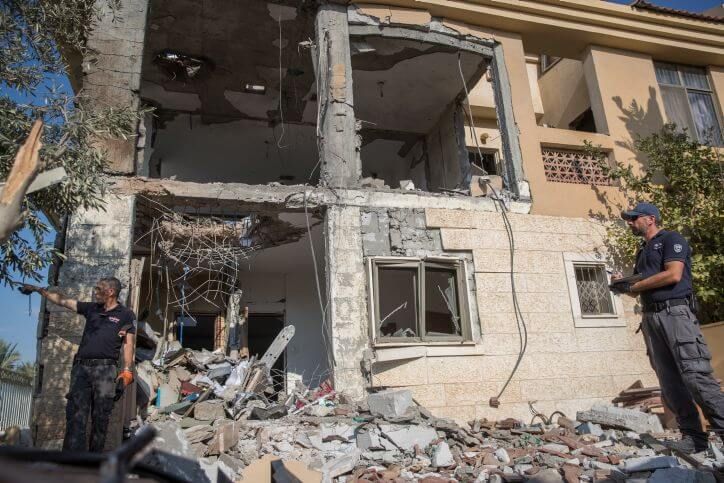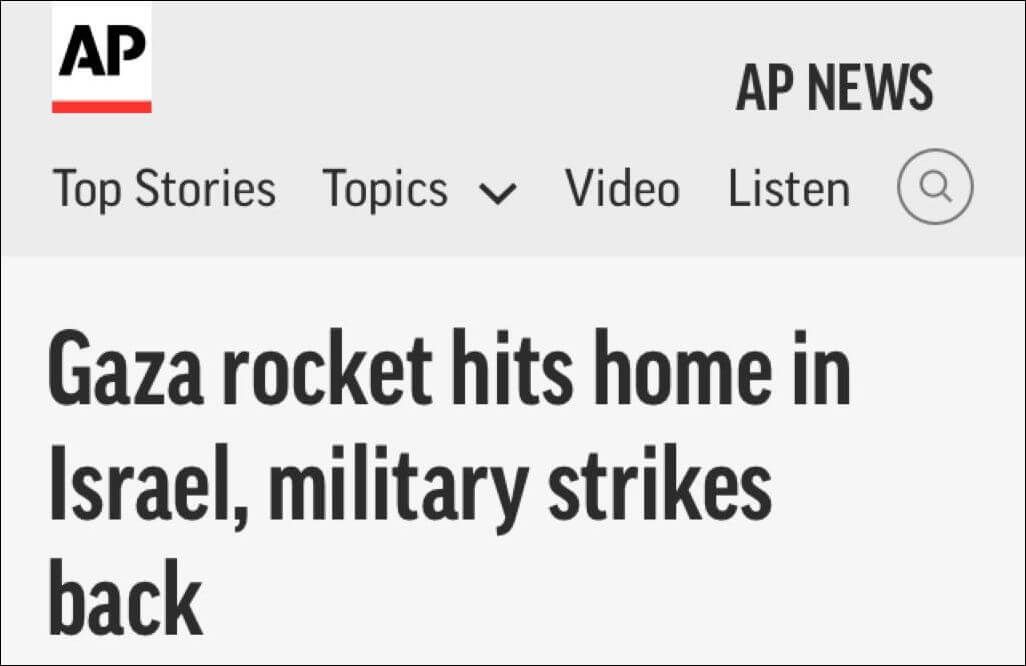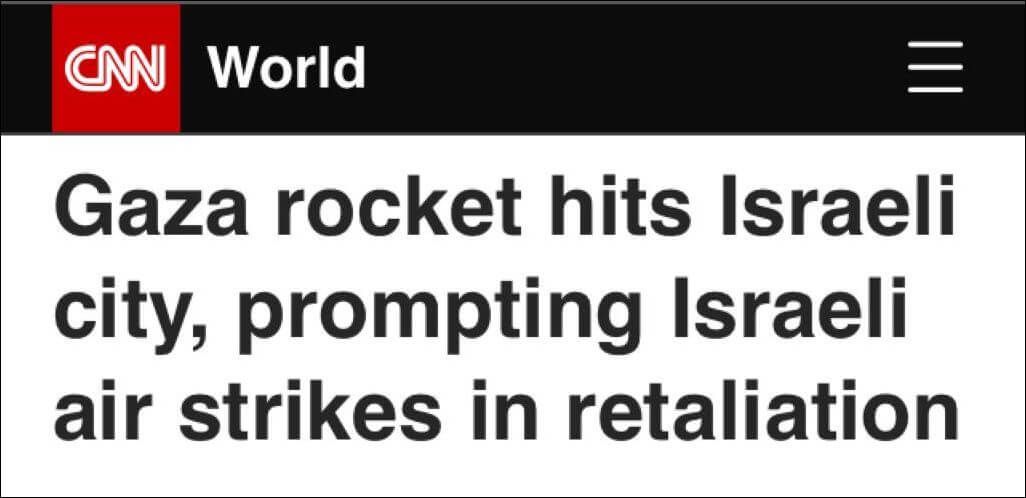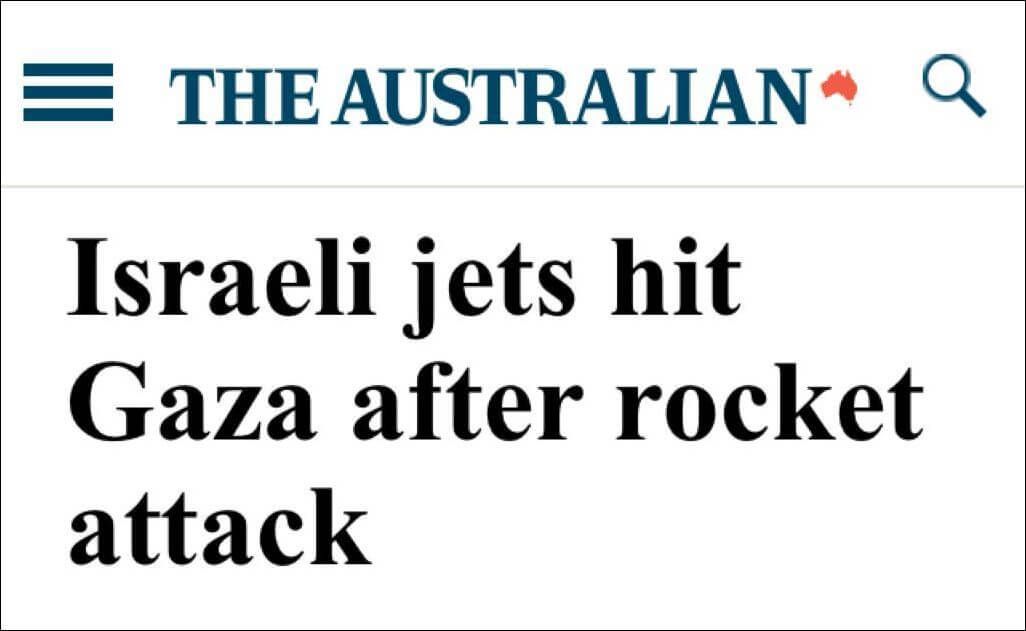A mother and her three children narrowly escaped with their lives in the early hours of Wednesday morning when a rocket fired from Gaza landed on their house in the southern Israeli city of Beersheba.
So often, media like to play the numbers game, using casualty figures as a moral barometer – if fewer Israelis are dying than Palestinians then this is somehow unfair and Israelis are clearly the aggressors goes the argument.
This, of course, fails to tell the real story and Israelis are not going to apologize for protecting themselves from murderous Palestinian intent. Indeed, the only reason the family in Beersheba survived is thanks to the reinforced safe room that all modern Israeli buildings have by law.

But how did the international media report on an incident that had (and still has) the potential to develop into a significant military escalation?
Unfortunately, some major media failed to file stories at all.
Why is this important?
Incidents like this in addition to the constant Gaza border riots, infiltrations, incendiary balloons and the like are vital context to any Israeli military actions. An uninformed reader will not treat an IDF air strike on Gaza as a defensive response if they are unaware of the Palestinian provocations that led to it.
Instead, screaming headlines about Israeli military operations can only present Israel as the aggressor and the Palestinians as victims of Israeli malevolence.
Join the fight for Israel’s fair coverage in the news
Sadly this isn’t a problem for some media outlets who are perfectly happy to buy into this false narrative.
So no reports in The Guardian, which has been obsessively consumed with the story of Australian suggestions that it could move its embassy to Jerusalem. Nothing in The Independent, which prefers to report on the demolition of a Bedouin village that hasn’t even yet taken place.
Unlike the US media, the pattern was repeated in most of the UK press with no reports in the Telegraph nor even the BBC. Why was this story of so little interest to the British media?
One UK title that did cover it, The Times of London, stuck its small AFP-supplied piece in its News in Brief section under the headline “Israel bombards Gaza after rocket hits city.” Given that the IDF struck mainly empty infrastructure in targeted precision bombings, the word “bombards” seems inappropriate.
What’s more, The Times said that “Twenty targets were hit in Gaza and a man was killed.” Not just any man and certainly not an innocent civilian. As IDF footage of the attack showed (in our video meme below), that Palestinian was a terrorist killed during the act of preparing to fire a rocket into Israel.
As for the media that did cover the unfolding events, special praise for the Associated Press that got the headline correct:

As did CNN:

This should be the norm rather than the exception. How sad that we should even have to congratulate the media for getting it right.
The Australian, however, took a Reuters story that did use an accurate headline and lazily butchered it to read:

While the Reuters headline mentioned the rocket landing in an Israeli city and that Palestinians had fired it, The Australian simply referred to a “rocket attack” offering no context. Why did The Australian need to alter an acceptable headline?
Somewhat surprisingly though, we weren’t confronted with a barrage of headline fails although this was partially a result of a lack of actual coverage.
“Tit-For-Tat”
We were, however, unimpressed with the Washington Post‘s reference to the events as a “tit-for-tat exchange” that bestowed a false moral equivalence between the Palestinian rocket attack and the Israeli response. “Tit-for-tat” is similar to the concept of a “cycle of violence.”
As Professor Cherryl Smith points out in an exclusive article on this very subject, scholars examining this misused term have concluded that “Israel responds predictably and systematically to Palestinian violence.”
There is no moral equivalence or “tit-for-tat” when Palestinians initiate violence and terror and Israel responds with counter-terror measures to defend its civilians.
In the immediate aftermath of the Beersheba rocket attack, we tweeted the following question:
Rocket hits Beersheba, Israel responds. Let’s see if the international media are bothered about the rocket attack. Will it be yet another case of ‘It All Started When Israel Fired Back?’ https://t.co/ZROxLnSMQe
— HonestReporting (@HonestReporting) October 17, 2018
Not all of the international media were bothered. But for the most part, it wasn’t yet another case of “It All Started When Israel Fired Back.”


